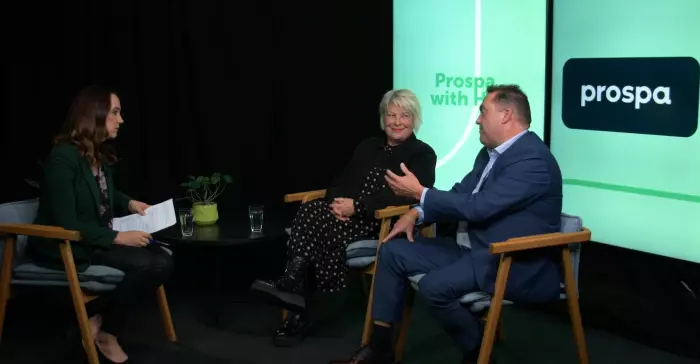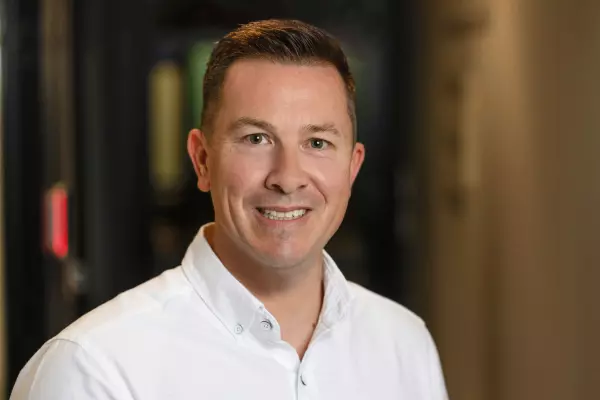For small businesses in New Zealand, the last few years have been “incredibly unusual” and it’s been a “rocky road”, according to experts discussing human resources in today’s Prospa webinar.
BusinessDesk partnered with Prospa, a small-business lending specialist, to host a three-part webinar series exploring topics that can be a challenge for small business owners. The first of three kicked off on Monday 18 July.
BusinessDesk’s investments editor, Frances Cook, hosted the discussion, alongside special guests Jane Kennelly, general manager of wellbeing and skills consulting, and founder of Frog Recruitment, and Dr Jarrod Haar, professor of human resource management at AUT, to take an in-depth look at how small businesses can improve HR strategies.
‘Great resignations’
The discussions kicked off with Cook noting the changes over the past two years. She asked Kennelly where we are now with the key trends in staff recruitment and retention for small business.
According to Kennelly, as far as talent is concerned, people have lost jobs, there have been “great resignations” and there have been huge talent shortages.
“We’ve had huge pressure recently on salaries and wages. So, this is a really difficult time, I think, for businesses and business owners”, Kennelly said.
But there are ways through this and Kennelly points out that when we think of employees, we often think we have ‘dibs’ on them, and forget that they choose to walk through the door every day.
Watch the full video below:
“I think it’s fair to say they are starting to have some high expectations from employers.”
However, she says these are people who can make decisions and decide where they want to work and what they want to be doing.
Kennelly recommends a shift in mindset, because employers need to start thinking of a workforce as a group of people and to “really maximise and get the best out of those individuals”.
‘Magically protected’
Cook asked Haar whether people are far more conscious now of the need for wellness in the workplace. That's because in a recent survey by Prospa, one in four businesses said maintaining employee wellbeing is a top priority, with 23% planning to invest more in staff training, development, and deployment.
“So how can small businesses look after their employees on that front?” asked Cook.
Haar was quick to point out that the business owners themselves should not be left out of that, seeing as they're usually the ones looking after everybody, but “we just assume they’re magically protected”.
“They’re the business owners, and they’re probably not [protected]. My data would say that business owners and managers are more likely to burn out, for example.
“They really are under the pump because they are trying to juggle all these things we’re talking about. So, it really is a challenging time for business owners.
“I think it’s great to hear that [wellness] is getting more attention and I do think that the training and development of staff is one way small businesses can retain staff,” Haar said.
He also mentioned some recent data showing a rate of 58% turnover of staff for the year.
“If you have a business of 20 people, you’re losing 10 to 11 people in a year. And you have a record low number of job applicants applying.
“So, it’s going to be a definite challenge. I would suggest it may pick up but it does depend on immigration and all those magic solutions …” Haar said.
Culture strategies
Talking about key people and culture strategies that small businesses should be bringing in right now, Kennelly said you need a way to interact with your people and do it in a meaningful way on a regular basis.
“I think organisations have definitely moved away from the fruit bowl and the yoga classes, to offering things that are really meaningful in people’s lives, such as EAP services where, if individuals are struggling at work or home for whatever reason, there’s an individual that can objectively support them, a specialist.”
Kennelly said it’s really about building a culture of trust and the way you do that is by:
- being open
- being transparent
- including people in problem-solving
- listening to their suggestions
- making sure they feel valued, recognised and heard.
“These are things that just take time. You have to focus on the individuals to make sure that it's happening because this is not going away overnight, we’re going to be working at this for some time and learning as we go,” she said.
Haar agreed and said he has data that “20-25% of companies are doing a great job out there”, which means the remaining 75% are “average and then downwards”.
He said that there is a group in the middle who will need to up their game, while the bottom quarter “probably don’t care”, but he warned that those in that business will likely be losing their staff and go out of business first.
He said there are lots of small things businesses can do “genuinely”.
“It’s fine to bring your employees in and say, actually, we’re really financially strapped, I can’t afford a lot. But here is what I can give you,” said Haar.
He added that not everything has to be about money. You can offer staff the ability to work from home for a few days, upskill employees, and other options.
“Those who are just sitting back hoping things will get better are probably going to get left behind. We’re in exciting times and there are lots of opportunities here, and I realise it’s a challenge for small businesses.
“But they’re probably going to be more reactionary and do something and be progressive,” Haar said.















